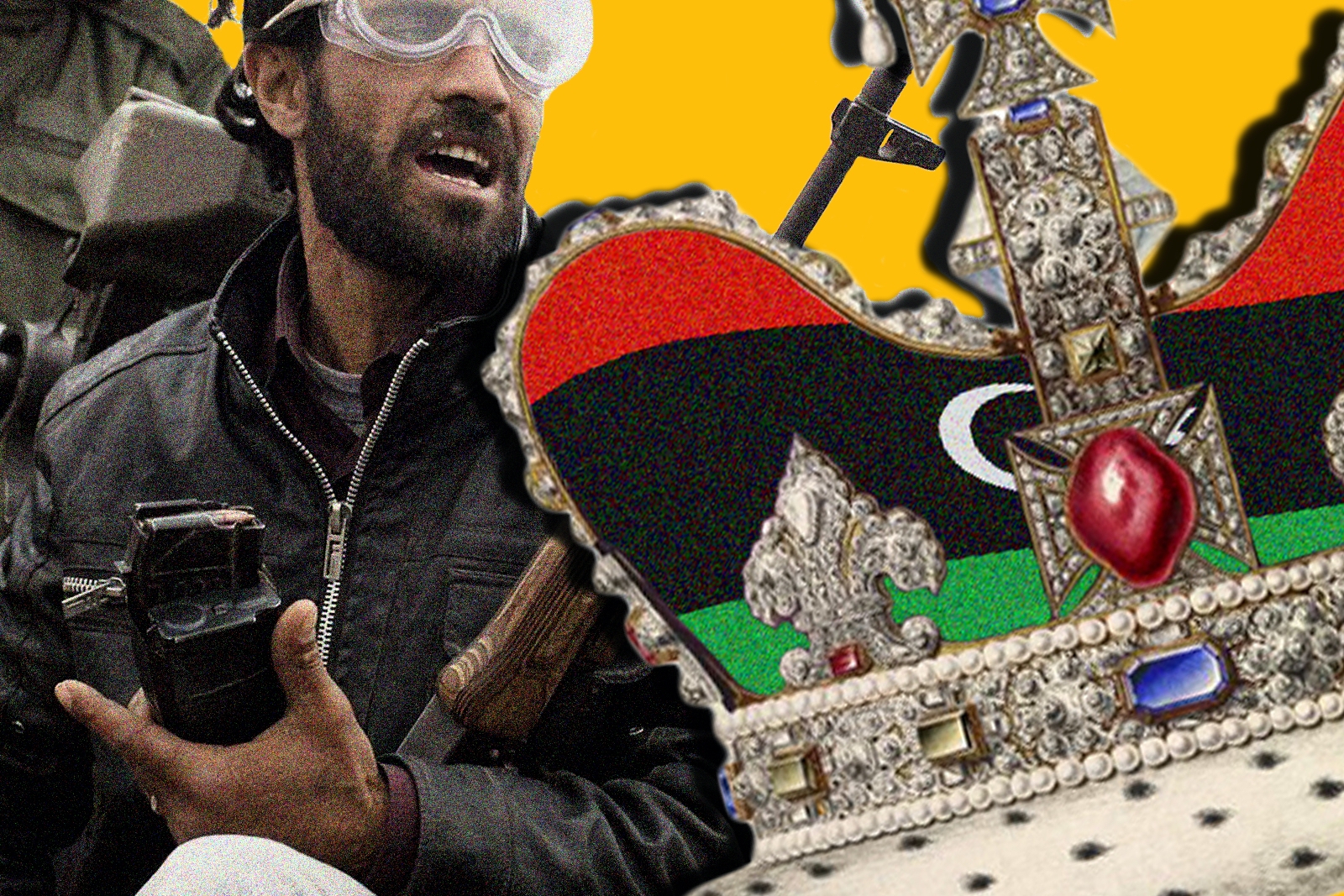
Historical Lessons Can and Should Inform the Future of Libya
International news cycles often miss critical events. In late December, while the Ukraine crisis dominated Western news media, Libya announced that it would postpone its presidential elections scheduled for later this year. Since mid-2021, it has been apparent that Libya’s internal factions hold fundamental political disagreements, including over the new president’s role and powers and a new constitution. While the High National Election Commission recommended rescheduling the election for early 2022, the Libyan parliament has yet to confirm this date. An extended period of political limbo, in turn, would heighten the risk of a renewed internal fracture.
The Libyan situation demands a creative solution, one unrestrained by conventional political wisdom and sensitive to historical circumstances. A constitutional monarchy may be just such a solution.
The Hashemite Faisal, Iraq’s first king, wrote in March 1932 that his kingdom was “a Sunni Arab government founded on the wreckage of Ottoman rule,” opposed by “Kurds” and “Shiites” who resist the new regime due to a lack of material economic improvement. Faisal may have been correct – we may identify the competition between these three forces of Sunni, Shia, and Kurd as the inciting factor for Iraqi instability. However, a deep irony abounds. The Meccan-born Faisal never abandoned his dream of uniting Syria and Iraq into a Mesopotamian Empire that would lead the Arab world into modernity. These same Arab nationalist forces would destroy Iraq’s monarchy 25 years after Faisal’s death. Their proponents would murder his grandson and extinguish the Iraqi Hashemite line, ending the hope of its resurrection as a pseudo-caliphal dynasty.
Revolutionary anti-monarchism, however, unleashed the social forces that Faisal had identified as anathema to Iraqi stability. They did the same throughout the Islamic world with varying degrees of initial violence, but towards the same end, first in Egypt, then Iraq, then Libya, Yemen, and Afghanistan. Each subsequent republic either fractured into civil war, if it was not birthed from it, or pursued an aggressive foreign policy that, in the most egregious case, may have led to great-power conflict in 1973. The Arab-Islamic revolutionary wave finally ended in 1979. Military dictatorships, police states, or hybrid tribal systems created a degree of regional stability, which collapsed again between 2003 and 2010. We still grapple with the effects of the second revolutionary wave, which the conclusion of the Syrian and Libyan civil wars may finally bring to an end.
The conventional Middle Eastern foreign policy wisdom runs as follows. The region’s problems stem from a lack of political representation and poor economic development. Liberal democracy provides both. But Middle Eastern liberal democracy has foundered on almost every occasion, whether imposed in Iraq and Afghanistan or organically supported in Egypt, Libya, or Syria. The resulting options are the acceptance of regional political systems and concurrent support for liberalisation or a return to wholesale democratisation efforts. The former approach may be reasonable in institutionalised regimes that have inculcated an expectation of regularity in their citizens. But neither option offers any assistance in transitional situations, for example, that faced by modern Libya as its parties attempt to end a six-year civil war. Thus, the logic runs, either the Middle East must be dragged against its will into liberal modernity, or remain captive to the pre-modern violence and tribalism that defined Europe until the 18th century, if not the Napoleonic revolution.
Closer inspection, however, reveals another option – that of monarchical restoration. Of course, this is anathema to the modern perspective. It rejects the premise that maximal democratic political representation is the method par excellence to cultivate “legitimacy,” that nebulous concept Weber scientifically defined as only robust in the rational-legal bureaucratic state. Under this model, it is contradictory that instituting or restoring a monarchy could generate positive results. After all, the supposedly “traditional” legitimacy conferred upon long-standing institutions is absent in any new regime.
But modernity is, at risk of stating the obvious, modern. If we may accept that liberalism defines modernity, then modern thinking will remain bound by liberal premises, unable to identify its own weakness or identify legitimate alternatives.
We may begin with a different view of man than the modern one – that of man as a political animal, not a rational-calculative economic animal. Humans live together because social interaction is natural. Society provides greater protection than familial life, and enables greater productivity, but also allows man to create. This creativity is, in part, material, per Marx’s observation that man differentiates himself from animals by making objects. But it is also intellectual. Humans come together to create political structures and generate laws. They undergird these structures with myths, stories that typically recount divine action in the temporal world, although the divine may be absent with sufficiently intense communal feeling. This socialisation impulse, what the Islamic philosopher of history Ibn Khaldun termed asabiyyah, allows humans to ascend from disorganised familial and tribal systems in which violence is endemic to organised, coherent states, and in some cases, to civilisation.
The transition from family and tribe to political unit, the smallest version of which is the independent city or polis, contains its growing pains. It is here that monarchy first emerges. As Khaldun argues, the king is the first individual to bring order to the growing society, subordinating the various classes and factions to a single will. It can be said, then, that the monarch constitutes the political unit.
The central practical political question is rather simple: who should rule? In principle, only three sorts of regimes may exist. Either one can rule as a monarch or tyrant, the few can rule as aristocrats or oligarchs, and the many may rule as democrats. Empirically speaking, however, the issue is more complex. The divide between monarchy and aristocracy becomes unclear in a noble-dominated political system, while democracies frequently have leading men that govern as aristocrats or kings. Despite this, the three ideal types of regime point to a fundamental issue. The question of who rules determines who most benefits from rule. Thus, domination by a single class – the wealthy few or the poor many – will tilt the regime in favour of narrow group interests, rather than safeguarding the salus populi. And there will be those who resist the institutionalisation of a new regime, who jealously guard the privileges and powers of the old order, particularly in a pre-social, pre-civilisational society.
It is in this context that monarchy may play a critical role. It stands over and above social distinctions, representing a fundamental unity within the nation that the salus populi implies. It is not that the monarch is a figurehead. Republics need not wear a crown, while those that do only retain royal regalia because of historical convention. Rather, the monarch has a central domestic political function. He may adjudicate between social groups with distinct economic or domestic-political interests, preventing tension from boiling over into civil dissolution. Paradoxically, his unelected status is an advantage. Absent dependence upon a specific class, the monarch may expand his support far beyond the political party.
Monarchy is only reasonable in nations that are suited to it. Like any regime, it requires a number of prior extant circumstances. Absent these, monarchy morphs into despotism, becoming indistinguishable from the dictatorship that we wish to avoid. Those regimes best suited to monarchy are those that approximate best the state before its initial constitution. Civil wars best resemble this situation. Per Hobbes, they are the closest circumstance to the natural state that can be identified in a social world. But an additional factor is necessary – an attachment to traditional social structures from which monarchy first emerges.
Foremost among these are tribes. Tribal systems need not be “ancient,” nor construed as “primordial” to be effective. Rather, they serve as a practical expression of asabiyyah by extending loyalty beyond the immediate family. Tribal loyalties offer an alternative pole of identification to sectarian or partisan affiliation during civil conflict, particularly if, as in Libya, the tribal system is broad and flexible.
Libya’s tribal nature and its decade of internal violence necessitate the consideration of monarchical solutions. The civil war’s excesses demand the establishment of an inclusive, broad-based government. But any government will become a battleground for partisan interests, precisely as the post-2011 parliamentary system did. A monarchy independent of factional affiliation can support those internal structures conducive to post-conflict stability and the cultivation of national solidarity, and balance the demands of those former combatant factions that reenter politics.
Faisal’s failure, however, must be remembered. The monarch’s primary, perhaps even its only, task is to ensure the stable reconstitution of social order. Any broader objective will prevent this consolidation, leaving society vulnerable to another bloody fracture.
